When you think of RPGs, Final Fantasy is usually the first name that comes to mind. Since the ‘80s, Final Fantasy has entertained gamers across the globe with chocobos, crystals, moogles, and plenty of emotional and evocative stories.Though, like with many franchises, some of the games are timeless classics, while a handful of them are… bad. Just plain old bad. We will be ranking the original versions of each mainline Final Fantasy game here, with the exception of the first six games, which will take into account the Pixel Remasters. With that in mind, here is our ranking of every Final Fantasy game from worst to best.
Ranking All the Mainline Final Fantasy Games
16) Final Fantasy II (1988)
Some game had to be the worst, and I don’t think anyone is complaining about it being II. This game first released in the West via a PlayStation 1 remake in Final Fantasy Origins. Maybe it should have stayed in Japan. The level progression system is bizarre, where your characters will only get stronger by using the same moves repeatedly and gaining health by taking damage. This has led to players abusing the system to become incredibly overpowered in the first area by just having your party members beating each other senselessly. However, if you don’t take advantage of this weird combat system, the game will beat you repeatedly thanks to its rigid and brutal difficulty. Add on a Star Wars-inspired but otherwise forgettable and generic plot, and you have one of the few Final Fantasy games that you should avoid at all cost, if only for your own sanity.
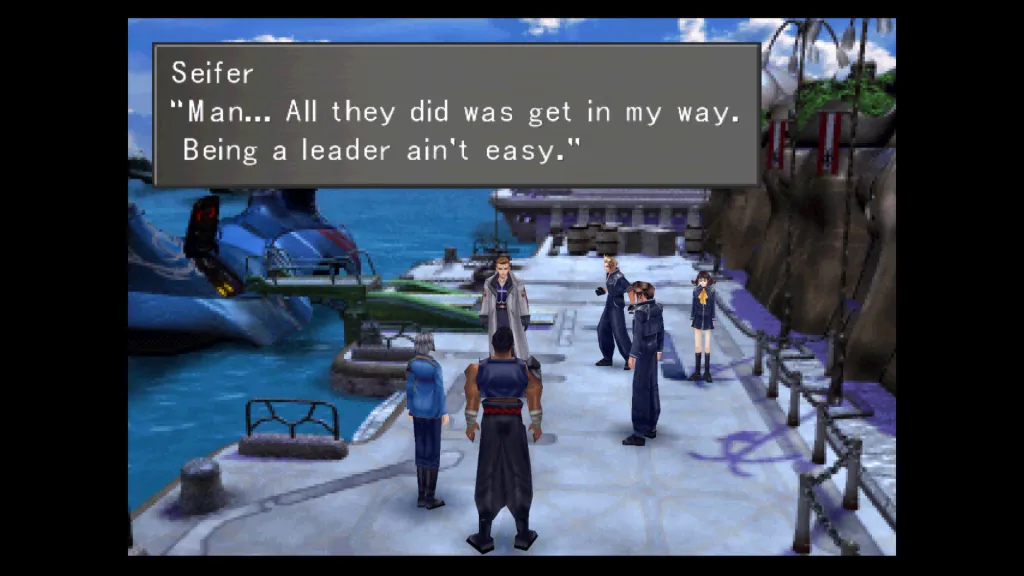
15) Final Fantasy VIII (1999)
Final Fantasy VIII tried to both follow in the footsteps of VII and also rock the boat exponentially. The characters felt more proportional to actual humans, and the game had a somewhat more grounded tone, focusing much of its runtime on the romance between the two main characters, Squall and Rinoa. However, the romance flounders from just how little the player cares about them as people, a problem that extends to the entire cast. The plot is needlessly complex and convoluted, but that complexity unfortunately spreads to the combat. Junctioning and drawing magic is the worst gameplay system the franchise has ever conceived and turns the game into a complete and utter slog. So why isn’t Final Fantasy VIII at the very bottom? Triple Triad is pretty dang fun.
14) Final Fantasy XIII (2010)
Oh, Final Fantasy XIII. I remember the absurd level of hype and anticipation the first HD Final Fantasy was garnering when it first came out, only to slowly but surely lose that goodwill. Linearity was XIII’s biggest crime, with the game infamously, according to some fans, “getting good after 25 hours” when the game decides to plop the player into open environments. Even if you want to ignore the linearity, which I do given how many of the best Final Fantasy games were also largely linear, the overabundance of lore and underwhelming cast really prevented me from getting too invested in the world. Future Final Fantasy XIII games would arguably be better than this first installment, but on its own, it’s hard to think of Final Fantasy XIII as anything but a disappointment.
13) Final Fantasy XI (2001)
Unlike most other Final Fantasy games up until this point, Final Fantasy XI isn’t really a bad game. It has its charms as the franchise’s first MMO, with some fun co-op opportunities and cool customization options. It does have its issues, like the mercilessly slow pacing and the difficulty that could even make players lose levels upon defeat, but for the most part they’re forgivable if you’re able to get a good party of friends together to play through it. There’s even still a healthy amount of people that play the game. But when compared to its younger brother Final Fantasy XIV, XI just feels antiquated. There is a fair amount of cool nostalgia I have for this game given how it tried to be a console-based MMO on PlayStation 2 and offered cross-platform functionality with PCs and Xbox 360, and I’m impressed it’s still getting content. However, the pacing and its superior alternative make it difficult for me to come back to this installment.
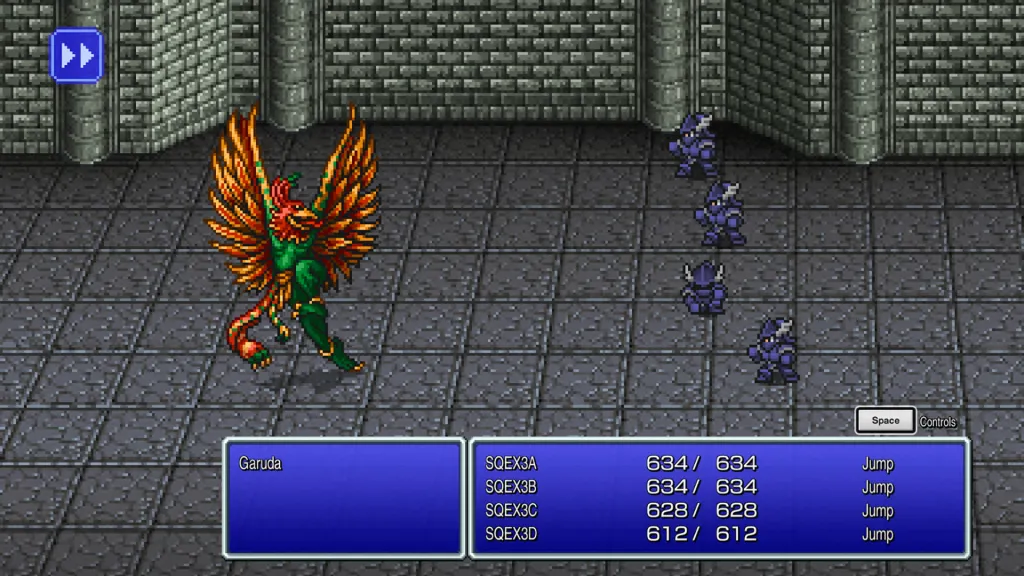
12) Final Fantasy III (1990)
Again, Final Fantasy III is not a bad game. This was the game that introduced the job system to the franchise, even though Western players never were able to play this game until its 2006 DS remake. The amount of customization the game offered players was unheard of at the time and allowed gamers to make the dream party of their choice. III does railroad you when you fight against some bosses, forcing you to select a few jobs just to have a chance, but most of the game is fun and entertaining. That is — until you reach the Crystal Tower. The last dungeon in the game is an endurance test where you fight against several bosses in a massive dungeon where death means you have to start your ascent of the tower from the very beginning. For this reason alone, if you are going to play Final Fantasy III, play the Pixel Remaster version for its auto-saves. Or you could just play Final Fantasy V, which takes everything that III did and expands and refines it.
11) Final Fantasy I (1987)
Out of all of the Final Fantasy games, I’ve probably replayed the original game more than any other. It’s simple, giving you a party of four characters with six possible classes, and you’re just sent off to save the world. This is a fairly open Final Fantasy game, giving the player a sense of freedom and exploration as you discover dungeons and improve your character classes. There’s very little complexity in this first entry, but sometimes you don’t need a deep hundred-hour RPG. Sometimes you just want a simple adventure that can be beaten in 10 hours. It’s perfectly functional… except for the original NES release. That version is downright broken. No way how you slice it, the original game is a product of its time, but it still holds up to this day.
10) Final Fantasy XV (2016)
In a perfect world, Final Fantasy XV would be much higher than this. The core dynamic between protagonist Noctis and his friends was enjoyable and easily the best thing about the game. This was the first Final Fantasy game in a while where I could say I liked most of the cast and thought that the plot was mostly handled well, though the romance between Noctis and Yunafreya was woefully mishandled.
The biggest fault of Final Fantasy XV was that it was overly ambitious. The game had an animated film, an anime series, a VR game, some MMO, a portable version for mobile and Nintendo Switch, and DLC upon DLC (at least until a large portion of that DLC was canceled). Square Enix tried to make Final Fantasy XV the next big thing but put the cart before the horse. It oversaturated the market all to hype up a game that is perfectly okay. It also was firmly more of an action game than an RPG, so some players take umbrage with it for that fact alone. No matter how you slice it, Final Fantasy XV didn’t have the impact that Square Enix thought it would have.
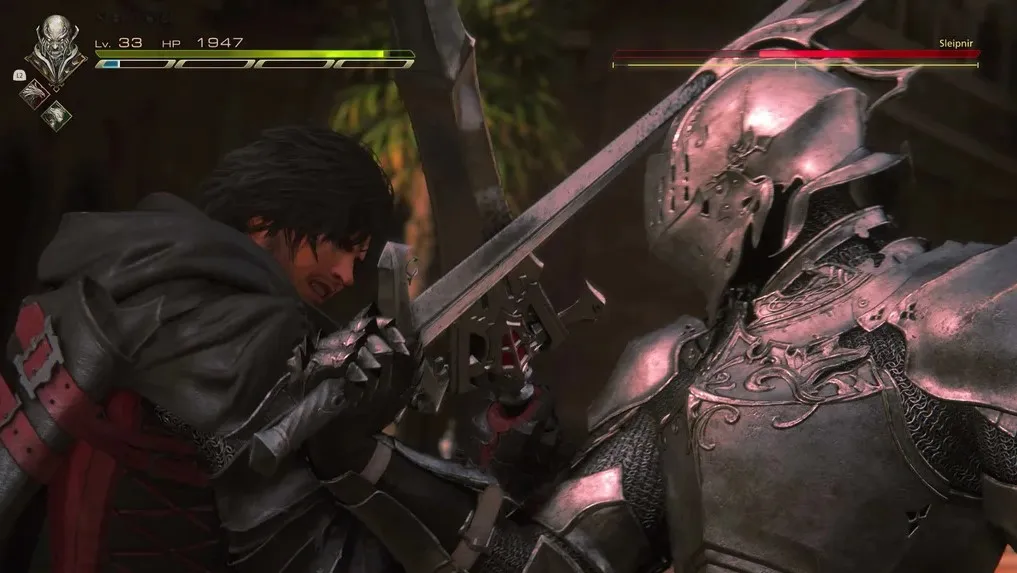
9) Final Fantasy XVI (2023)
As the most recent Final Fantasy game, it’s hard to accurately judge where it should be placed among the rest of the franchise, but I think that right in the middle of the list is where Final Fantasy XVI is most comfortable. It’s by far the darkest entry in the franchise, sporting a much grimmer aesthetic, difficult commentary about slavery, and tons of senseless murder. And while the world is interesting and has amazing set pieces, like the frequent Eikon battles, the rest of the game is perfectly functional and not very ambitious.
If there were any hopes that Final Fantasy would go back to its RPG roots after XV, those hopes are officially dead since XVI goes all in on action. It’s not bad action, but it’s very standard and not very satisfying stringing together combos or defeating bosses. It gets better as the game progresses and you gain access to more Eikons to vary your combos, but by the time you have a solid repertoire to experiment with, the game is almost over. The sidequests are fine, with some of them leaving an undeniable impact on the player, but they also leave something to be desired. And that’s Final Fantasy XVI in a nutshell — fine, but it leaves something to be desired.
8) Final Fantasy XII (2006)
A polarizing entry, Final Fantasy XII was a more mature entry insomuch as the plot felt a lot more complex and grounded compared to plots in earlier entries with more over-the-top and cartoonish elements. You either love what XII attempted to do with its story of political intrigue and an absurdly fleshed out world, or you hate it. Its story is dense and fascinating, with some of its cast, most notably Balthier and Ashe, becoming especially beloved due to their charm and chemistry.
But what really sets XII apart from the other installments, for better or worse, is its combat and leveling system. The Gambit system lets you program party AI and the License Boards unlock various power-ups, and they aren’t for everyone, requiring an almost obsessive degree of micromanaging to get a party that can adapt to any situation thrown at you. It’s a time commitment to be sure, though the flaws in the original game would be remedied in the Zodiac Age re-release, making that the definitive version. XII is unlike any other entry in the series because of its mechanics, but it’s worth taking a look at if only for what is considered by some to be the best plot in the series and something that is wholly unique compared to its siblings.
![]()
7) Final Fantasy IV (1991)
An excellent entry point for beginners, Final Fantasy IV, originally known as Final Fantasy II when it was released on the SNES back in 1991, helped introduce many players to what would become the template for the series for basically all of the ‘90s. The story of Cecil and his redemption is simple and likes to reuse fake-out character deaths a bit too much, but it’s still something that anyone can get into. The game is pretty linear, but because of that the plot always feels like it’s moving forward and has the necessary dramatic twists and turns you would expect of a grand fantasy story.
Where IV really shines is in the Active Time Battle System (ATB) it introduced. This system makes you actively engaged in turn-based combat encounters, timing your moves accordingly and always making you aware of the enemy’s abilities and attacks. Because of the party composition always changing as the story progressed, you never really had to grind and instead learned the intricacies of each class and their abilities. If you’re getting into RPGs for the first time, Final Fantasy IV is a great place to start. For veterans, it may be a bit simplistic and easy by today’s standards, but it still delivers a solid and entertaining adventure that is a SNES classic.
6) Final Fantasy V (1991)
Final Fantasy V is what happens when you take the best elements of Final Fantasy III and IV and mesh them together. V brings back the job system from III but evolves it with more jobs and more party synergies to play with, while also retaining the ATB system and solid sprite work from IV. The plot isn’t as character-driven as in IV and is in fact a bit weaker, but it makes up for it with just how great the gameplay experimentation is. It’s a much goofier game than any other Final Fantasy, but its lighter tone also gives the game a sense of charm that just isn’t present in all other installments. Final Fantasy V isn’t necessarily one of the most memorable experiences as a whole, but the depth of its battle system is tough to beat.
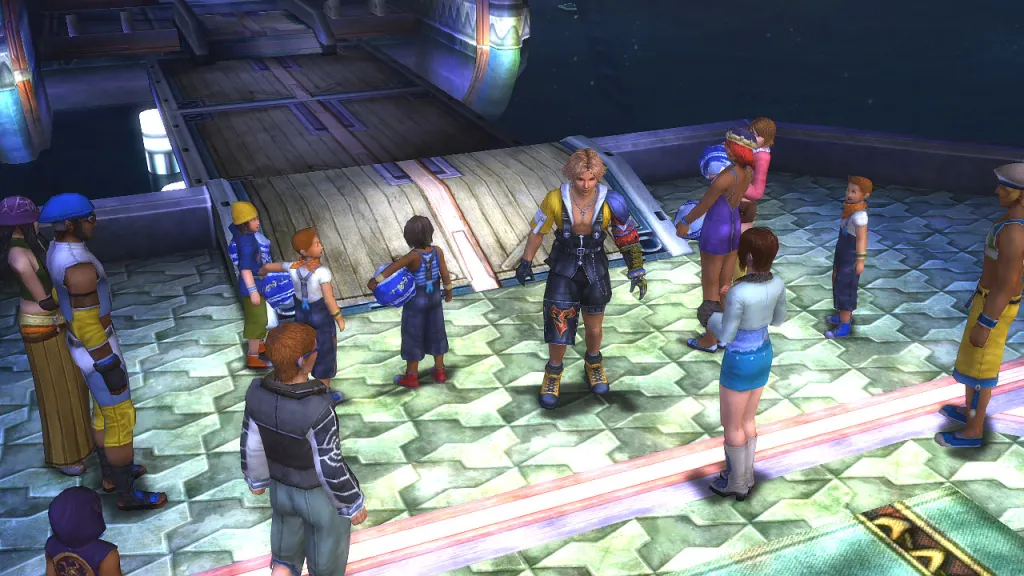
5) Final Fantasy X (2001)
Much in the same way that Final Fantasy VII was a revolution for the series, the same can be said of Final Fantasy X. With cutting-edge graphics and voice acting, this entry helped generate excitement and interest in the PS2, turning it into the mecca of RPGs during its generation. X had an incredibly well-designed and fleshed-out (albeit highly linear) world, showcasing a mystical world inspired a lot by South Pacific iconography that sets it apart from virtually every game in the series.
Sure, there are elements to criticize about the game, but X hits more than it misses. The romance between Tidus and Yuna actually works, and the cast (minus Kimahri) are fun to pal around with. The Conditional Turn-Based Battle (CTB) system also encouraged strategy and party composition more than ever before. The result is an RPG that would leave an impact on many games to follow.
4) Final Fantasy XIV (2013)
The story of Final Fantasy XIV’s revival from derided failure to one of the best MMOs today is nothing short of fascinating. Originally launched in 2010, Final Fantasy XIV was such a mess that it was nuked into oblivion and replaced with the version we know today, an accessible MMO that is absolutely thriving. With a surging player base across multiple systems and a healthy amount of expansion packs, this is the entry to get into if you just want to throw yourself into a gargantuan world that is absolutely bursting with content. Sorry, XI fans, XIV is just better.
3) Final Fantasy VII (1997)
I agonized over the placement of the top three in the ranking because these games have left such a profound impact on the franchise as a whole. In this case, Final Fantasy VII single-handedly made the franchise a household name in the West. An extreme marketing campaign by Squaresoft showed off just how cutting-edge and cool this franchise would look on PS1. And it worked. Fans love Final Fantasy VII and have loved it for decades.
The story of Cloud Strife, Sephiroth, Tifa Lockhart, and Aeris Gainsborough (She will always be Aeris to me.) is one of the most beloved in all of gaming, and the gameplay allowed you to play around with character abilities to make the party that best fits your play style. It wouldn’t be the best at this particular approach, but it’s open enough where no one playthrough will be played the exact same way. You can definitely tell that a lot of effort was put into the presentation of this game, and if you can look beyond the datedness of that presentation by modern standards, its themes, music, and plot deserve the praise that they have cultivated over the years.
![]()
2) Final Fantasy VI (1994)
It’s tough to explain in a few words what makes Final Fantasy VI, originally known as Final Fantasy III, such a masterpiece, but that goes to show just how wonderful the game is from top to bottom. It boasts a huge cast of characters each with their own unique and likable personalities, a plot that features several poignant and powerful moments, and a second half that allows you to explore the game’s world and have the adventure you want to have. Magicite and relics also give you a degree of freedom in how to use your 14 party members, along with lots of choice in party composition. Final Fantasy VI isn’t just one of the best Final Fantasy games. It’s one of the best RPGs of all time and one of the best SNES games of all time. I almost don’t need to justify its placement here compared to the other games in the series. It’s truly a bonafide masterpiece that deserves to be played right this very second.
1) Final Fantasy IX (2000)
Outside of the hardcore audience, Final Fantasy IX is probably the most underrated game in the series. It released right at the end of the PS1 lifecycle at a point when the PS2 was already on the market, so its sales weren’t as high as they could have been. Nonetheless, it has one of the best stories in the series and refined the ATB system to a mirror sheen, and it is just difficult enough that victory doesn’t just come down to who has the higher numbers. The game plays brilliantly and utilizes the PS1 to its fullest potential, displaying a world that is memorable and contains the deepest and most poignant examination of its central cast of any entry.
People remember Final Fantasy IX for its joyous cast, each with their own eccentricities and quirks. But for all of the fun and charm that the cast and world exudes, there’s a darkness present that fans remember to this day. The biggest criticism I can lob at the game is that combat feels drawn out due to all of the extravagant animation, but you can make that claim towards any of the PS1 installments. When it all comes together though, you have the most cohesive game in the series, featuring comedy and tragedy, a balanced difficulty, plenty of side content to keep you entertained, and an ending that serves as throwback and culmination of everything in the franchise up until that point.
That is our ranking of the mainline Final Fantasy series. Let us know how yours compares.

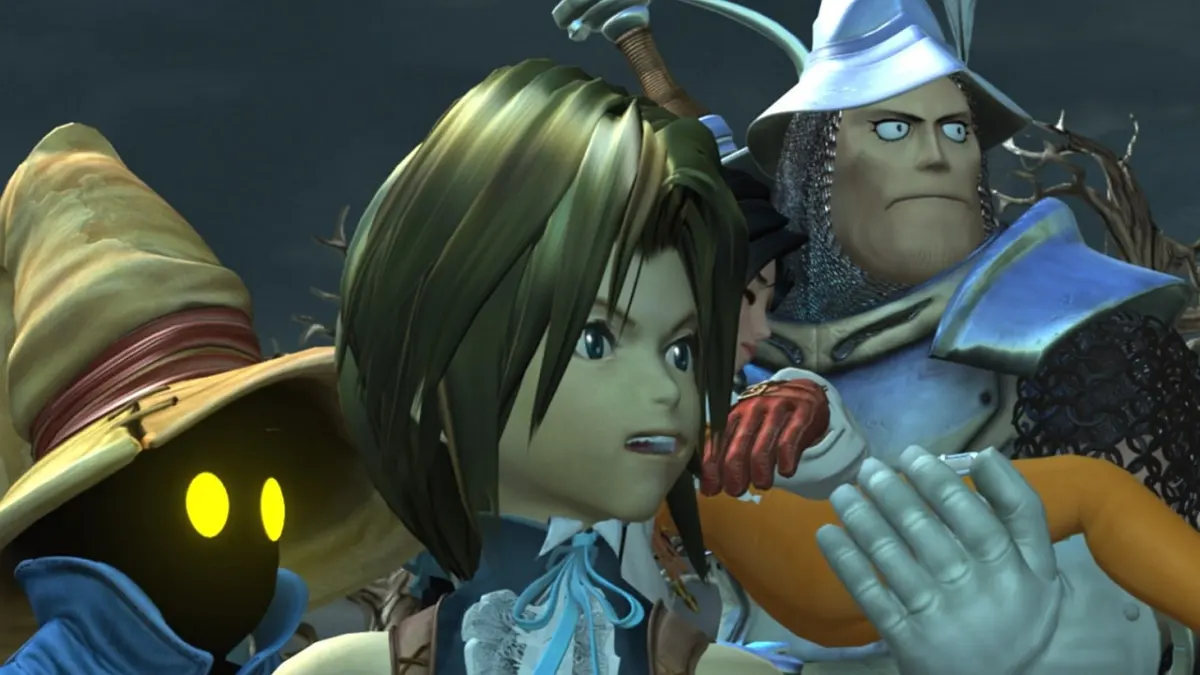
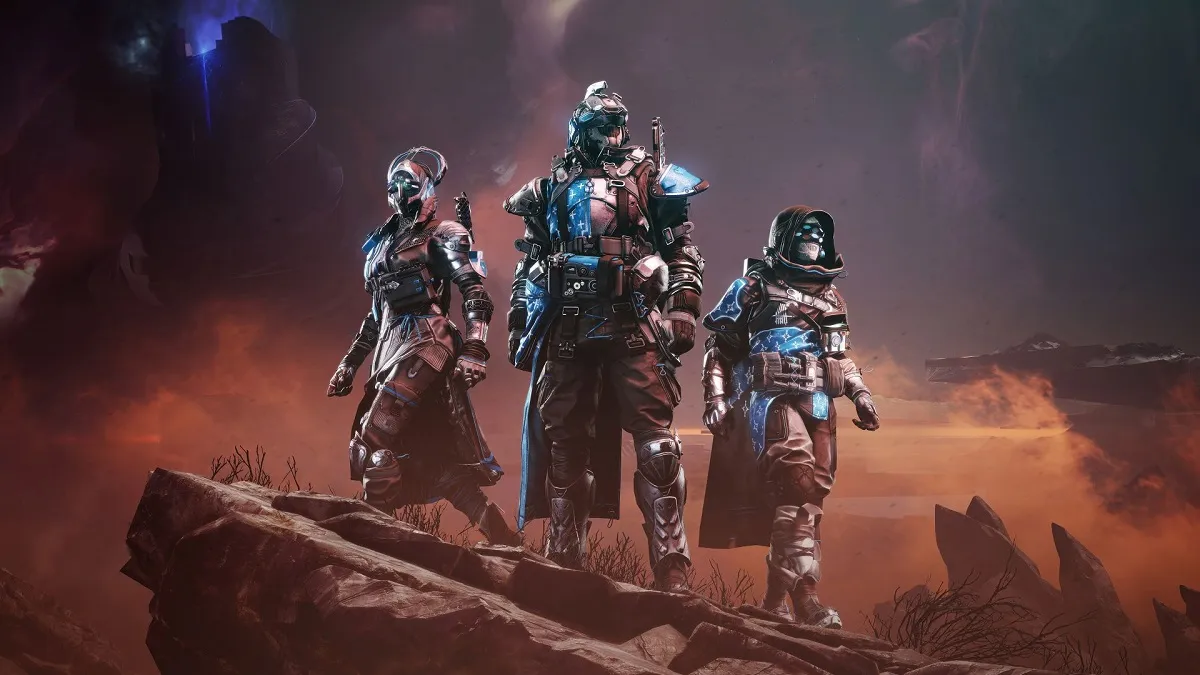


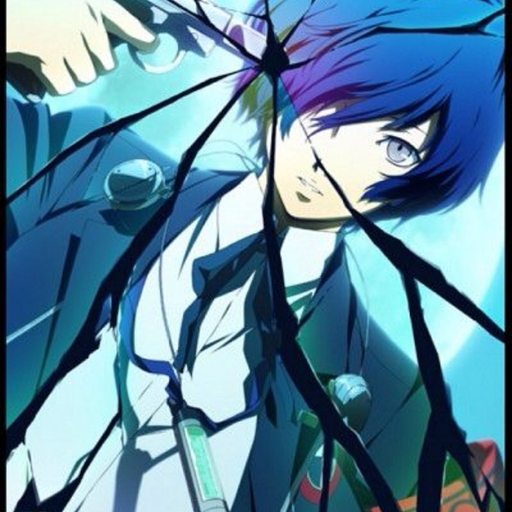
Published: Jul 8, 2023 07:36 pm